Bride of Vengeance
Cast & Crew
Mitchell Leisen
Paulette Goddard
John Lund
Macdonald Carey
Albert Dekker
John Sutton
Film Details
Technical Specs

Synopsis
In the early sixteenth century, Duke Alfonso D'Este of Ferrara, Italy, purposely builds his reputation as an indolent fool who is interested only in entertainment and the construction of a statue dedicated to the god, Jupiter. Alfonso's advisor, Peruzzi, reprimands him for ignoring ambitious Roman Cesare Borgia, whose regime threatens all of Italy. When Peruzzi is killed by an assassin, Alfonso confides in his court physician, Filippo, his intention to go to Rome and his hope that his newfound reputation as a fool will protect him. Alfonso takes Filippo with him, as he is working on a cure for "Roman fever," which is caused by a poison Borgia uses to kill his enemies. In Rome, Borgia orders his general, Don Michelotto, to kill Alfonso if he refuses to allow Michelotto's troops into Ferrara, as a route for Borgia to invade Venice. Alfonso, still playing the fool, insists that he has already made a military alliance with Venice and flirts with Borgia's beloved sister Lucretia, brazenly kissing her on the mouth. Not long after, Lucretia's husband, Prince Bisceglie, is attacked by assassins in front of the court, and Michelotto purposely holds off shooting the assassin until he has succeeded in stabbing Bisceglie. Borgia and Michelotto, who ordered the assassination, are disappointed when Bisceglie does not die, and Alfonso ingratiates himself with Lucretia by sending Filippo to treat her husband. Borgia takes Filippo hostage, however, and replaces him with an impostor who murders Bisceglie and leaves Filippo's signet ring as evidence of Alfonso's treachery. Borgia then pledges that Lucretia can avenge her husband's death against Alfonso. Not long after, Alfonso is shocked when Michelotto arrives in Ferrara and tells him that Borgia is offering him Lucretia's hand in marriage. Aware that he cannot refuse this offer, Alfonso marries Lucretia the next day, and sends his painter, Tiziano, to Rome as a thank you. However, Alfonso abandons Lucretia on their wedding night because of a fire at the foundry where his monument is being built. Unknown to anyone but Alfonso, his foundryman, Vanetti, and his foundry guards, his "Jupiter" is really a giant cannon that he has been constructing to defend the city from Borgia. Because the hot metal fills the mold too rapidly to create a solid cannon, Alfonso is forced to hide the defective weapon in the moat. Lucretia then rejects Alfonso, insisting that he prove that their marriage is not just a "state" marriage, but when she urges him to respond to Borgia's entreaties of an alliance, Alfonso states that Ferrara belongs to the people, not to him. Later, when a poet named Bastino is brought for judgment for writing slanderous poetry about Lucretia, Alfonso gives Lucretia the opportunity to endear herself to the populace, and she frees Bastino. Bastino then becomes her spy, and after she learns about the foundry, she warns her brother about the monumental cannon. Alfonso, meanwhile, continues to work for Filippo's freedom, and orders the execution of a foundry guard who abandoned his post, unaware that the guard left to admit Lucretia. Lucretia has fallen in love with Alfonso despite herself, but her brother reminds her of Alfonso's supposed treachery, and gives her poison with which to kill him. That night, Lucretia pledges herself to her husband after poisoning his wine. When Alfonso, who sincerely loves Lucretia, confides in her about his secret cannon, she realizes that she has misjudged him. Alfonso likewise realizes he has misjudged Lucretia when the foundry guard identifies her. Alfonso belays the execution order and banishes the guard, then collapses from the poison. As Lucretia rides out of the city to join Borgia and his advancing troops, Filippo returns in time to administer an antidote to Alfonso. As part of the cure, Filippo plunges Alfonso into a fountain of cold water, which he says will temper his body as cold water tempers metal. Inspired, Alfonso dredges up the old cannon from the moat, believing that it has also been "cured." At Borgia's camp, a distraught Lucretia encounters Tiziano, who shows her one of his paintings of Filippo. Lucretia now understands that the man who treated her husband was an impostor, and that her brother has manipulated her for his own aims. Borgia urges Ferrara to surrender so that he will not have to destroy the city, and Lucretia agrees to return there. She actually intends to help the city defend itself against her brother and is shocked and grateful to find Alfonso alive. He, however, refuses to believe she is on his side until Borgia's army marches at the gate. Alfonso then fills the cannon with scrap metal and chains and fires it, slaughtering most of Borgia's troops. The surviving soldiers withdraw, but when Michelotto calls Lucretia a devil, Borgia resignedly says that he cannot fight what is in the stars, and stabs Michelotto to death. The people of Ferrara celebrate their victory, and Alfonso's faith in Lucretia is restored.

Director

Mitchell Leisen
Cast

Paulette Goddard

John Lund

Macdonald Carey

Albert Dekker
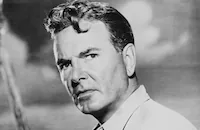
John Sutton
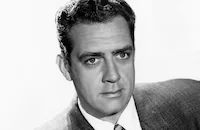
Raymond Burr
Charles Dayton
Donald Randolph

Rose Hobart
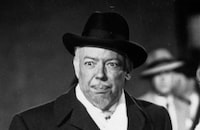
Nicholas Joy
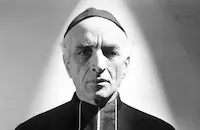
Fritz Leiber
Kate Drain Lawson

William Farnum

Anthony Caruso

Douglas Spencer

Billy Gilbert
Dean White
Ed Millard

Frank Puglia

Nestor Paiva
Victor Romito
George Zoritch

Peter Mamakos
Franklyn Farnum
Richard Webb
Gordon Clark
Gordon Arnold
Gil Perkins
Hugh Murray
Erica Strong
Sally Rawlinson
Jimmie Dundee

George Robotham
George Holmes
David Horsley
Charles Hamilton
Charles Fogel
Edward Biby
James Carlisle

Ian Wolfe
Robert Greig
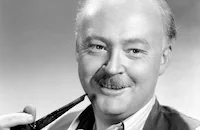
Don Beddoe
Houseley Stevenson
Morgan Farley

Clayton Moore
Robert Kellard
James Anderson
Robert Bice
Len Hendry
Kirk Alyn
John Vosper
Gil Warren
Henry Corden
John Bleifer
Gordon Nelson
Victor Desny
John Arnold
Charles Sherlock
Mil Patrick
Nan Boardman
Irene Martin
Tony Barr
James Harrison
Myron Marks
Crew
Roland Anderson
Haskell Boggs
Dick Brandow
Henry Brill
Hugh Brown
Malcolm Bulloch
Frank Caffey
Sam Comer
John Coonan
John Cope
Earl Crowell
Clemence Dane
Clemence Dane
Ruth Davis
Everett Douglas
Hans Dreier
Farciot Edouart
Ray Evans
Daniel L. Fapp
Lyle Figland
Hugo Friedhofer
Robert Goodstein
James Grant
Mary Grant
Hilda Grenier
Lupe Hall
George Harrington
Michael Hogan
Michael Hogan
Haydn Hohstadt
Cyril Hume
Gordon Jennings
Richard L. Johnston
Constantine Klein
Mitchell Leisen
Mitchell Leisen
Jay Livingston
Phyllis Loughton
Alma Macrorie
Richard Maibaum
Bert Mckay
Don Mckay
John Meehan
Hedvig Mjorud
Richard Monroe
Ray Moyer
Irving Newmeyer
Albert Nozaki
Sidney Perell
Glen Porter
Bill Price
Georges De Saint Germain
Troy Sanders
Eric Selig
Karl Silvera
Herb Tyce
Wally Westmore
Ardel Wray
Victor Young

Film Details
Technical Specs

Quotes
Trivia
Notes
The working title of this film was A Mask for Lucretia. According to a Hollywood Reporter news item, Ray Milland was originally slated to appear as "Alfonso D'Este," but refused the role, and was placed on suspension by Paramount. Modern sources add that John Lund, originally slated to play "Cesare Borgia," was then cast as "Alfonso," and also contributed to the screenplay. The historical reputation of the infamous sixteenth-century Borgias is that of a brutal and possibly incestuous family. Cesare Borgia took political and military control of Rome after his father was elected pope, and engineered his sister Lucrezia's three marriages as a way of annexing more territory. After her first marriage was annulled, Lucrezia's second husband, Alfonso, Duke of Bisceglie, was murdered by agents of Cesare, who then engineered her third marriage to Alfonso d'Este.












